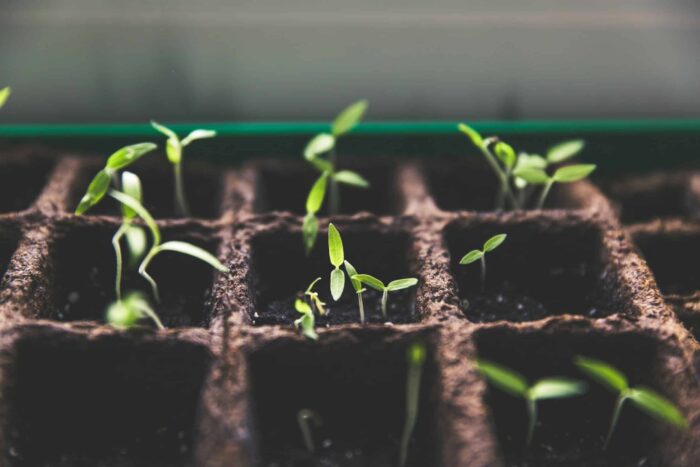More and more gardeners are making the switch to organic fertilizers for growing healthy, productive plants. Organic fertilizers nourish plants while enhancing the soil ecosystem instead of disrupting it like synthetic fertilizers can. When using organic fertilizers, you are working with nature rather than against it. In this article we talk about Guide to Organic Fertilizers for Healthy Plants In 2024.
In this comprehensive guide, we will explain what organic fertilizers are, why they benefit your plants and soil, and provide tips for using various types of organic fertilizers in your garden.
What Are Organic Fertilizers?
Organic fertilizers are plant nutrients derived from natural materials like animal manure, compost, bone meal, blood meal, bat guano, worm castings, seaweed, and more. These provide nutrients through the natural decomposition process instead of the use of harsh chemicals.
Organic fertilizers release nutrients more slowly over a longer period. This provides steady nourishment to plant roots better than synthetic fast-release fertilizers that can damage roots or leach away quickly. The nutrients in organic fertilizers come packaged in organic matter which improves soil structure and beneficial microbial life.
Benefits of Organic Fertilizers
Improved Soil Structure and Fertility
The organic matter in organic fertilizers provides food for helpful microbes like bacteria and fungi that live symbiotically on plant roots. These microbes break down organic matter and release more nutrients for your plants to access.
As the microbes feed on organic fertilizers, they leave behind sticky substances that bind soil particles into crumbs, creating the ideal soil structure. This improves aeration, drainage, and moisture retention.
Increased Nutrient Availability
While synthetic fertilizers provide an immediate nutrient spike, up to 50% of the nitrogen can leach out of the soil quickly. Organic fertilizers break down more slowly, ensuring a steady supply of nutrients over the whole growing season. The end result is healthier plants with higher yields.
Enhanced Water Retention
The organic matter provided by organic fertilizers acts like a sponge in the soil, greatly improving its ability to absorb and retain moisture. This helps buffer plants against drought.
Fewer Pests and Diseases
Healthy, biologically active soil grows healthy, resilient plants. The diverse microbial life stimulated by organic fertilizers competes with and fends off soil-borne diseases that might attack your plants. Healthy plants are also naturally more resistant to pests.
Reduced Environmental Impact
Synthetic fertilizers require huge amounts of energy to produce. As they break down, they release greenhouse gases like nitrous oxide into the atmosphere. Nitrogen fertilizers can also leach into groundwater or get carried off into local waterways, polluting drinking water and causing toxic algal blooms that harm ecosystems.
By contrast, organic fertilizers are a sustainable option. Since they work with natural systems instead of disrupting them, they don’t cause the same negative impacts.
Tips for Using Organic Fertilizers
Now that you know why organic fertilizers are beneficial, let’s cover how to use them effectively. Pay attention to these tips for best results:
Always do a soil test first – A soil test will tell you which nutrients are lacking so you can choose the right organic fertilizers to supplement your soil’s needs.
Apply at the right time – Spring and fall are the best seasons to fertilize plants. Avoid fertilizing during summer heat or winter dormancy.
Know which plants need more nutrients – Heavy feeding plants like tomatoes, peppers, and squash require more fertilizer than lighter feeders like beans, carrots, and onions.
Use slow release fertilizers before planting – Mix in organic materials like compost, manure, or alfalfa meal a few weeks before planting annual crops so nutrients have time to become plant-available.
Top dress around established plants – Sprinkle dry organic fertilizer around transplants or established perennials, trees, and shrubs. Water it into the soil.
Make fertilizer teas – Steep high-nitrogen fertilizers like worm castings, blood meal, or bat guano in water for a concentrated liquid feed. Dilute this “tea” before pouring it around plant roots.
Follow label instructions carefully – When using pre-made organic blends, follow package directions closely to prevent accidents like fertilizer burn. More is not better with organic fertilizers!
Reapply every 1-2 months – Unlike synthetic slow release fertilizers, organic options don’t last all season. Replenish organic fertilizers monthly or bi-monthly.
Common Types of Organic Fertilizers Below we’ll explore some of the most popular organic fertilizer options and how to use them:
Compost & Aged Manure
Compost and aged manure (that has been sitting at least 6 months) provide a complete balanced diet for plants. Spread 1-3 inches on garden beds before planting or as a top dressing. Mix compost into potting soil for containers.
Worm Castings
Worm castings contain 2-3 times more nutrients than regular soil. This black gold is full of beneficial microbes and is safe to apply generously when plants are young and again later in the season.
Alfalfa Meal
With 3% nitrogen content plus trace minerals, alfalfa meal fertilizes soil while boosting populations of helpful fungi and bacteria. Apply 2-5 lbs per 100 square feet before planting.
Blood Meal
A slaughterhouse by-product, blood meal is dried, powdered animal blood containing 12-14% nitrogen. Blood meal also contains small amounts of phosphorus and potassium. Use 1/2 lb per 100 square feet when preparing soil or as periodic side dressing for heavy feeders.
Bone Meal
Steamed, pulverized animal bones provide phosphorus, calcium, and nitrogen to help produce bountiful blooms and fruit. Mix bone meal into potting soil or sprinkle 1-2 tablespoons around transplants.
Bat Guano
Bat guano comes packed with 10-12% nitrogen, phosphorus, potassium and beneficial microbes. Bat guano fertilizes soil while improving its texture and water retention. Side dress plants with 1 tablespoon per square foot every 6-8 weeks.
Fish Products
Fish meal, fish emulsion, fish hydrolysate, and crab meal give plants a quick nitrogen boost. Fish fertilizers also contain vitamins, proteins, and omega fatty acids for enhanced plant health and fruit production.
Seaweed & Kelp Meal
Dried seaweed and kelp contain over 60 minerals and growth promoters like cytokinins and auxins that stimulate plant development. Kelp meal bolsters plants’ resistance to frost and insects. Use 1-2 lbs per 100 square feet.
In Conclusion
Organic fertilizers lead to healthier soil, which grows healthier plants naturally resistant to disease and pests. Follow this guide to choose the right organic fertilizers for your gardening needs and learn best practices for applying them. Soon you’ll have thriving plants and bountiful harvests grown the natural way with organic fertilizers. I sincerely hope you find this “Guide to Organic Fertilizers for Healthy Plants In 2024” article helpful.
No related posts.

